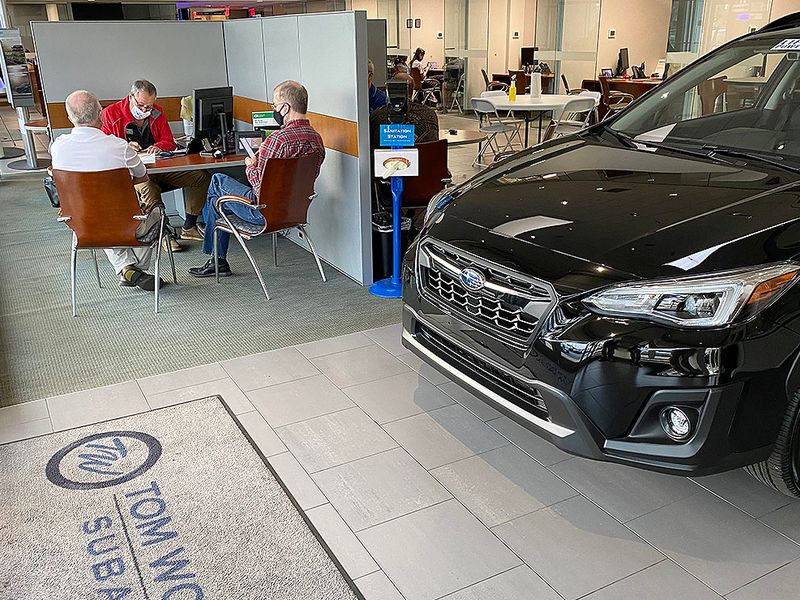
California tech company Huddlebots, producer of what its website calls “nanorobotic machines,” is breaking new scientific ground. But Huddlebots’ technology is not to be confused with the fictional nanobots described in science fiction writer Michael Crichton’s novel Prey. Instead, Huddlebots’ nanorobots are “molecules with a unique property that enables them to be programmed to carry out a specific task” thanks to “exploiting programmable self-assembly properties of nucleic acids.”
Alas, like much of the science described on the site, Huddlebots doesn’t actually exist. Nevertheless, the company has shown up nearly a dozen times as an employer on auto loan applications.
According to San Diego fraud company Point Predictive, Huddlebots’ website is fake, established to trick lenders into accepting fraudulent employment information about a potential borrower. It’s one fraud method contributing to the massive jump in income misrepresentation at auto lenders that Point Predictive has tracked during the coronavirus pandemic.
Many U.S. auto lenders that work with the San Diego company experienced a more than 50 percent increase in false income information on auto loan applications, Point Predictive’s chief fraud strategist Frank McKenna said last week. He attributes the rise, in part, to a surge in unemployment and professional fraud activity during the pandemic.
“These are employers you would have never heard of, but yet they’d have like $30 million in annual salaries going out to people,” he said.
The pandemic’s ongoing toll on the U.S. economy has forced some consumers to seek other avenues to approval. Purchasing fake pay stubs online allows auto buyers to obscure unemployment status, for instance.
“A lender doesn’t want to know on unemployment you’re getting this temporary $600 increase; that’s simply not going to help you qualify,” McKenna said. “But if you said I may work for this service company making $2,600 a week, then it would be more likely to get approved.”
Falsified document fraud “essentially doubled” at auto lenders in Point Predictive’s consortium, McKenna said, as more people turn to purchasing pay stubs. In 2019, the fraud company flagged between 50 and 100 auto loans per month with bad employers. At the onset of the pandemic, that figure jumped to 200 per month. Since this summer, the company said more than 300 auto loan applications come in per month with known fake employers.
Since March, the company has identified 366 fake employers. Huddlebots is one.
Eleven loan applications listing Huddlebots as the employer were submitted for a total loan value of $182,000.
A data mining position at Huddlebots pays $156,000 and is dispensed biweekly, according to a pay stub obtained by McKenna. For false income data, fraudsters typically report salaries between $74,000 and $86,0000 a year.
“They actually tell you not to make it too high,” McKenna said. “If you make it high, it gets questioned.”
On a call last Friday, McKenna dialed the number on Huddlebots’ website. Pretending to be a bank employee, he asked about the employment status of Frank McKenna, and provided the last four digits of his Social Security number. After a few minutes on hold, he was told McKenna no longer works at the company.
Many of these services target subprime consumers, which are steadily shrinking in market share during the pandemic. The average amount for loans originated with Huddlebot income data is fairly modest at $16,669.20, mainly on applications for used vehicles.
Point Predictive analyzed “tens of millions” of auto loan applications over the past five years, concluding that 10 percent of all customer pay stubs submitted to auto lenders were fraudulent.
To combat the fraud trend, Point Predictive cautions lenders against accepting pay stubs. Lenders should consider using more precise tools to confirm income to slow the spread of fraud in their portfolios, McKenna said.
One option is Point Predictive’s own IncomePass Report, which uses 18 independent data points evaluated against more than 80 million previously submitted loan applications.
Another option is Equifax’s program called The Work Number. The credit bureau maintains a database of income verifications for dealers and lenders that it says increases by 40 percent the likelihood that auto lenders close a loan.
“This income problem is here to stay. You’ve got all these credit repair companies that are now out there helping borrowers qualify that otherwise wouldn’t,” McKenna said. “Whether they’re helping them wash their credit or helping them create fake pay stubs, a lot of that will continue into next year.”